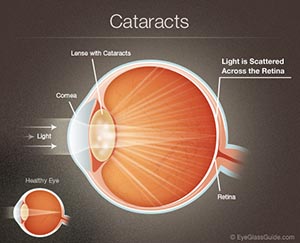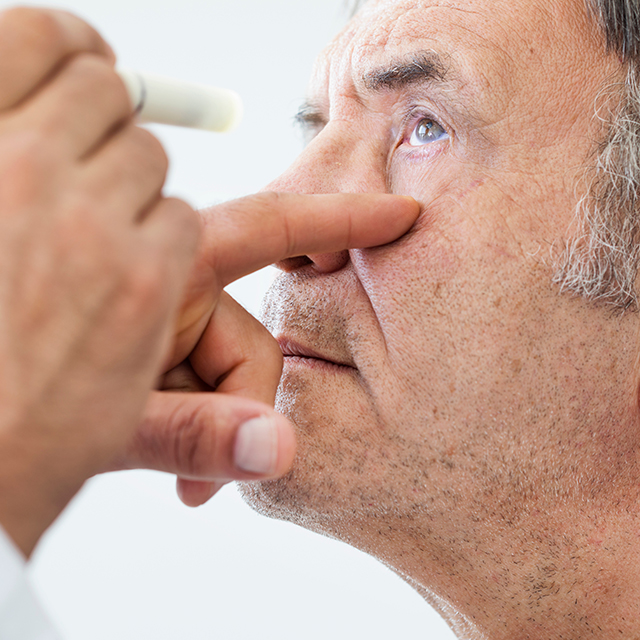All About Cataract Surgery
Cataract occurs when the normally clear lens of the eye becomes clouded. Cataract surgery removes this hazy lens and replaces it with a transparent artificial intraocular lens (IOL). At Sullivan Ostoich Eye Center, Dr. Kevin L. Sullivan and Dr. Christine Mata are board-certified ophthalmologists and surgeons, expertly qualified and highly experienced in performing laser and cataract surgery.
We Perform Cataract Surgery In Hoffman Estates, Northwest Chicago
The main symptoms of cataracts are blurry vision and increased glare from lights. Sometimes these problems are so minor that they don’t disturb your daily life. However, when cataracts are more severe, they can impair your ability to live normally, such as:
- Driving
- Performing your job properly
- Watch television
- Climb staircases
- Identify faces confidently

Cataracts may also interfere with medical treatment of another ocular condition, such as diabetic retinopathy or macular degeneration, as they can prevent a thorough eye examination of the back tissues of your eye. These are all reasons why your eye doctor may recommend cataract surgery. Dr. Sullivan will meet with you to discuss your candidacy for the procedure.
Preparing for Cataract Surgery
There are a variety of types of IOL’s available, with different features. To determine the best option for you, it’s advised to discuss the benefits and risks of each type with your eye doctor or optometrist.
About a week before your scheduled surgery, an ultrasound test will be done to measure the shape and size of your eye. The procedure is relatively quick and totally painless. These measurements will help decide upon the most appropriate IOL.
From 6 hours before the surgery, you may also be instructed not to eat or drink.
What To Expect During Cataract Surgery At Your Hoffman Estates Eye Doctor
Start to finish, the entire procedure generally takes one hour or less and is done on an outpatient basis. We’ll walk you through the basic steps of what to expect.
Your eye doctor will insert dilating eye drops and you’ll be given local anesthetics to numb the eye region. You may also be prescribed a relaxing sedative that will make you groggy but not put you to sleep.
The clouded lens will be removed and an artificial, clear IOL will be implanted. The implant is composed of either silicone or acrylic, and you will not be able to feel, see or sense it in your eye. It is placed inside your eye not on the surface like a contact lens.
Immediately after the surgery, your vision will likely be blurry due to the pupil being dilated. This should improve within a couple of days, as your eye heals. You will not be able to drive yourself home after the surgery, so be sure to arrange a ride. You may resume normal activity the day after surgery including driving.










